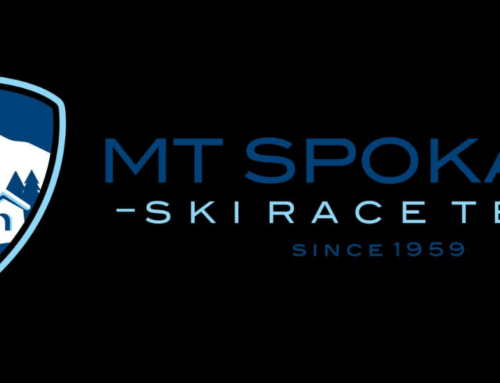Health of Sport with ‘no teeth’ approved by Congress
On Thursday, the Alpine Development Committee and later the Alpine Sport Committee gave final approval to the Health of Sport proposal, which was the result of a year-long task force that originated at Congress in 2019.
The proposal, which is presented in four parts, sparked a spirited debate among the alpine community due to a provision (Part D) that would have restricted the number of FIS starts an athlete could make in a given season. The intent of the rule — which originally would have limited starts to 25, 30 and 35 for first-, second- and third-year FIS racers, respectively — was to discourage point-chasing and, in turn, limit travel and reduce the cost of the sport.
“We weren’t able as a community to come to an agreement around a rule on this point,” said Chip Knight, alpine development director for U.S. Ski & Snowboard. “So the U16-and-older Working Group came back to the idea of a recommendation as a measure where we could investigate it further … so it would help us get in line a little more with our alpine training system, help us get a little more feedback for next season.”
The measure passed unanimously as amended by the U16-and-older Working Group. Part D now reads as follows:
Start limitation recommendations for 2020-21 season. Applies to SL and GS starts only.
- 2004 YOB: 35 SL and GS FIS Starts
- 2005 YOB: 25 SL and GS National Starts
- 2006 YOB: 25 SL and GS National Starts
Notably, the number of starts for 2005 YOB was actually reduced from 30 to 25 but with the provision now merely a recommendation, not a rule. It led some on the development committee to question the effectiveness of such a measure.
“So I guess the big elephant in the room is changing it to a recommendation, which in my mind is a non-rule,” said Karen Ghent, chair of the development committee.
“Recommendation, it’s pretty weak and really has no teeth. It’s really a non-rule with just a recommendation,” said U16-and-older Working Group Chair Todd Brickson, who originally submitted the proposal to limit FIS starts a year ago.
In the long run, FIS starts may not wind up being solely a domestic matter with the FIS also simultaneously considering this issue on an international level, according to Knight, along with the issue of lowering the FIS racing age back to 15 from 16. Due to the coronavirus pandemic, these discussions have been postponed until the fall when FIS will host its own congressional meetings.
Also amended since the original Health of Sport proposal was submitted was Part B, which now reads: “Regional selections to Regional Camps, NPS, Jr. Nationals and U.S. Alpine Championships should be based on head-to-head competition within one’s own region.”
The word “will” was replaced with the word “should” to encourage head-to-head competition, but provide flexibility.
Part A was unchanged and reads as follows: Regions and divisions will establish an ability-matched system of race series for U16 and older, whereby athletes start at an introductory level and advance to the next level by meeting a standard, such as points, rankings and/or qualifying event results, determined by the region and/or division. Head-to-head competition should be included in the advancement method.
The proposal’s only real “teeth” comes in Part C, which states: Racing in the Southern Hemisphere is prohibited for 1st year FIS athletes.
With that being the only binding rule within the now-enacted Health of Sport legislation, many on the subcommittee suggested there is more work to be done and called on the task force to continue its role in tracking the effect of the new recommendations.
“If this is a recommendation because we want to see how things go, is it worth tracking,” asked Ghent. “If we track it or study it, then who does that? The Health of Sport Task Force? A recommendation is fine as long as you have something that comes out of it. Why are we recommending it if we’re not going to study it and figure out what happens?”
Ghent emphasized there would be no point in recommending start limitations if no new knowledge were gained as a result. Brickson agreed that the effects should be monitored and the recommendations would provide more flexibility, especially with growing uncertainty surrounding the pandemic and the season ahead.
“I see that as a continuation of the task force work as we see what happens with the international proposal and also with the state of our sport due to the pandemic,” Brickson concluded.
After a unanimous vote by the development subcommittee members, the proposal was later approved in a lump action by the Alpine Sport Committee.
Have some thoughts on this? Send a letter to the editor. If it’s good, we’ll publish it.





















